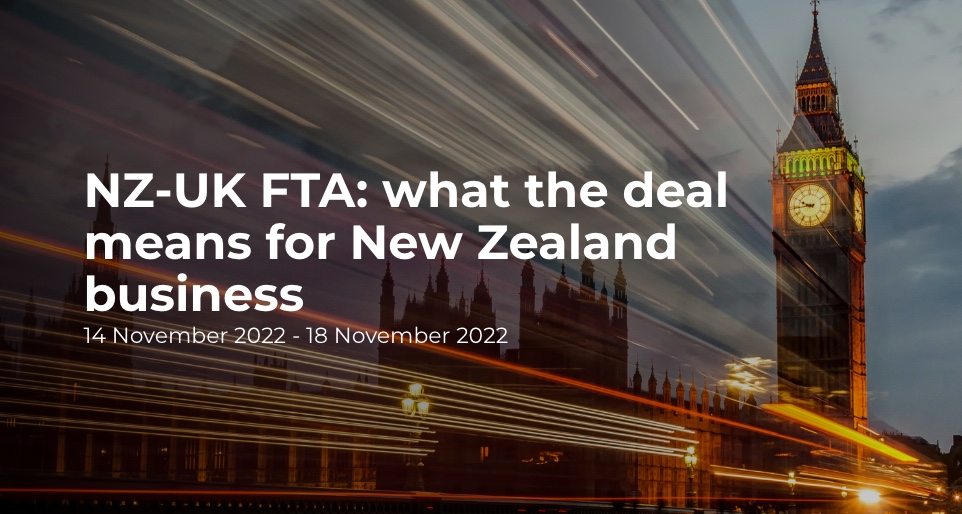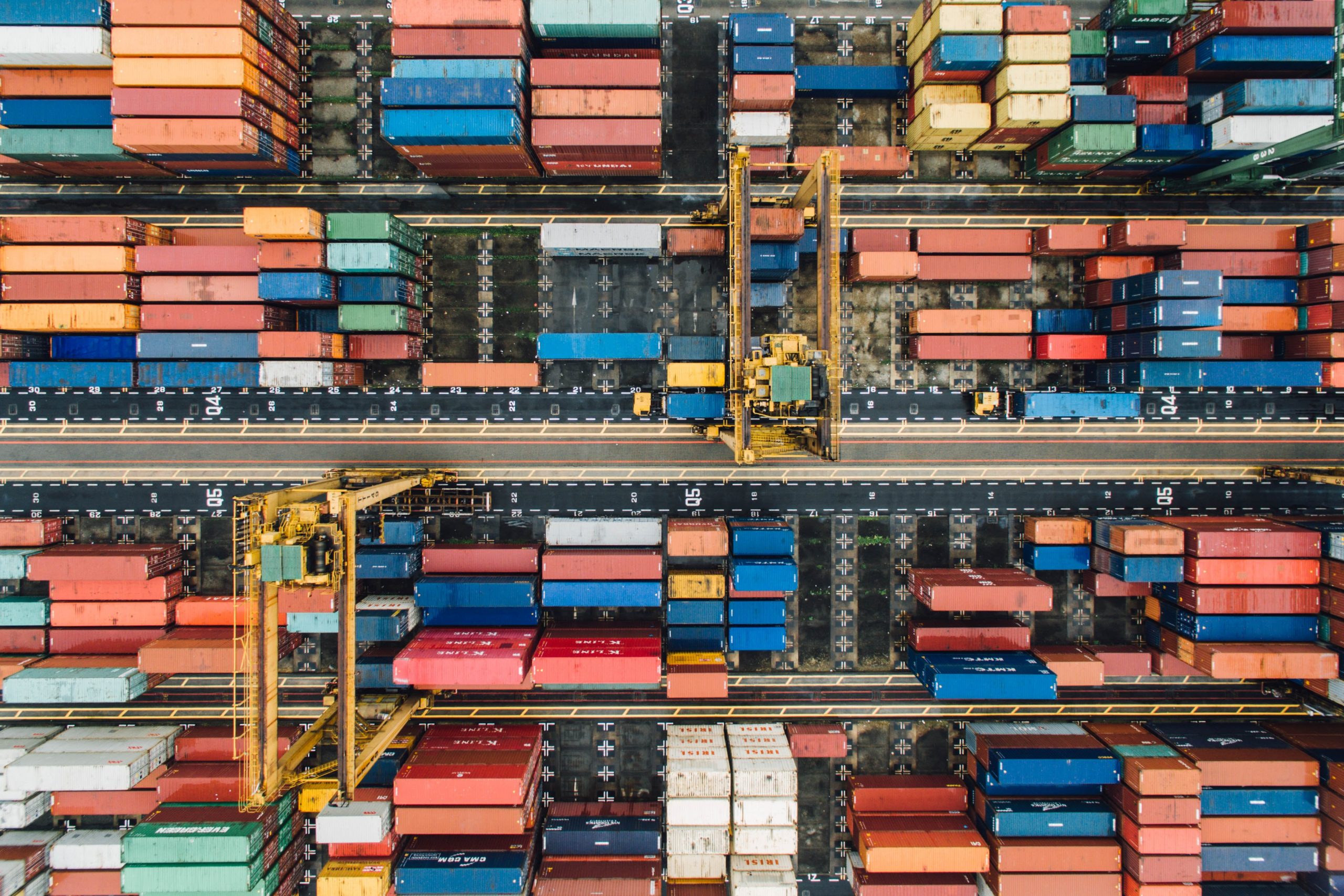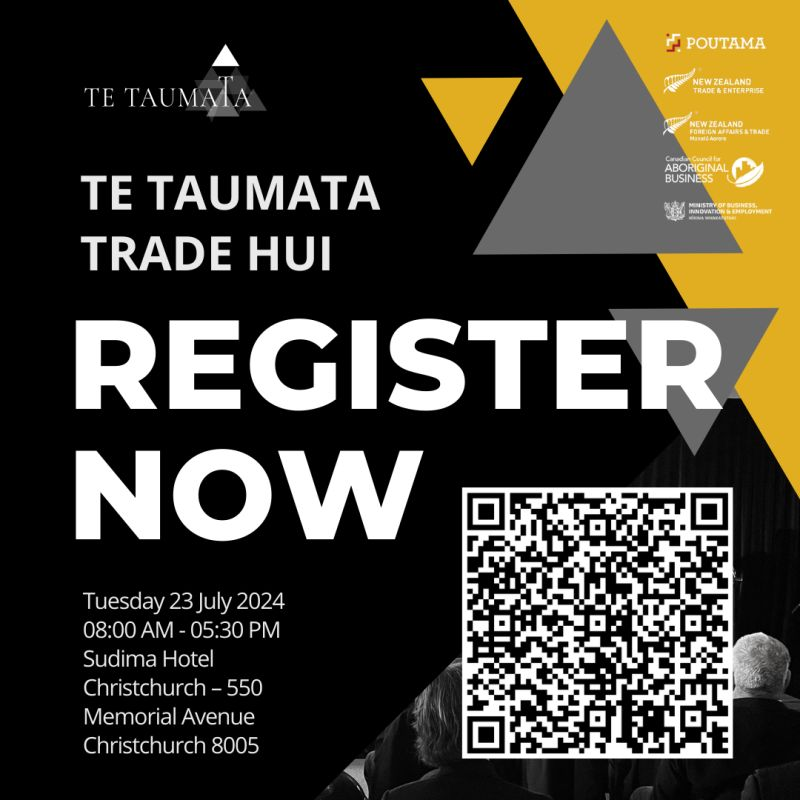A piiki shoutout to the Black Ferns on a magnificent win against England in the Rugby World Cup final held in Tāmaiki Makaurau at the weekend. Kei runga noa atu koutou mā ngā wāhine toa – kei te poho kererū mātou i ā koutou!
In today’s pānui, we reflect on 65 years of exporting Aotearoa to the world, and how that journey has impacted generations of Māori.
The Ministry of Foreign Affairs and Trade (MFAT) is hosting a 4-day series of events around the motu for Aotearoa businesses to learn more about the Aotearoa New Zealand – United Kingdom Free Trade Agreement (FTA) and to engage with trade experts. The first of the series will be held next Monday in Dunedin.
Pānui mai.
Reflecting on 65 years of exporting Aotearoa

Economic research agency, BERL, recently released an article reflecting on 65 years of exporting Aotearoa.
Their kōrero clearly shows the correlation between Māori economic prosperity and international trade. In 1957, Aotearoa was almost completely reliant on our traditional commonwealth relationships for trade, with almost 70 per cent of our trade going to the United Kingdom.
Agricultural products made up the bulk of exports (96.6 per cent), including diary produce, meat, wool, and hides, skins, and pelts. Seventy per cent of all frozen mutton and lamb imported into the UK were from Aotearoa.
During the same period, there was almost full employment for Māori in these export jobs – especially in rural communities like Northland and the East Coast, where main incomes were sourced from the land.
Over the subsequent 20 to 30 years, the UK’s focus shifted to building European trade relationships, joining the European Economic Community (EEC) in 1973, causing a collapse in Aotearoa’s agricultural trade to the UK.
The impact was immediate for Māori across Aotearoa. Māori employment collapsed, particularly in small rural communities. Whānau left in droves to find mahi in cities, leaving behind virtual ghost towns.
The legacy from that time is still being felt today, with those same rural communities experiencing some of Aotearoa’s worst socio-economic indicators and thousands of Māori being severed from ancestral ties.
The importance of international trade to Māori cannot be underestimated, it’s critical to our wellbeing. So, it’s reassuring to see Aotearoa’s commitment to obtaining Free Trade Agreements (FTAs) with our international community.
Ironically, we (Aotearoa) have just re-signed a new FTA with the UK – the sixth largest economy in the world. With the rise of international economies like China and India we need to keep our eye to the world to ensure we continue to raise up Māori businesses and the wellbeing of our people.
Upcoming hui – NZ-UK FTA: what the deal means for New Zealand business, 14 – 18 November 2022

MFAT is hosting a series of events around the motu for Aotearoa New Zealand businesses to learn more about the NZ-UK FTA and to engage with experts.
These events will be an opportunity to hear from New Zealand businesses active in the UK, and from New Zealand’s Trade Commissioner for the United Kingdom and Ireland, Nick Swallow.
You’ll also hear about what the NZ-UK FTA means for New Zealand exporters and learn more about the UK business environment and insights for growth.
Find out more information or register here.


